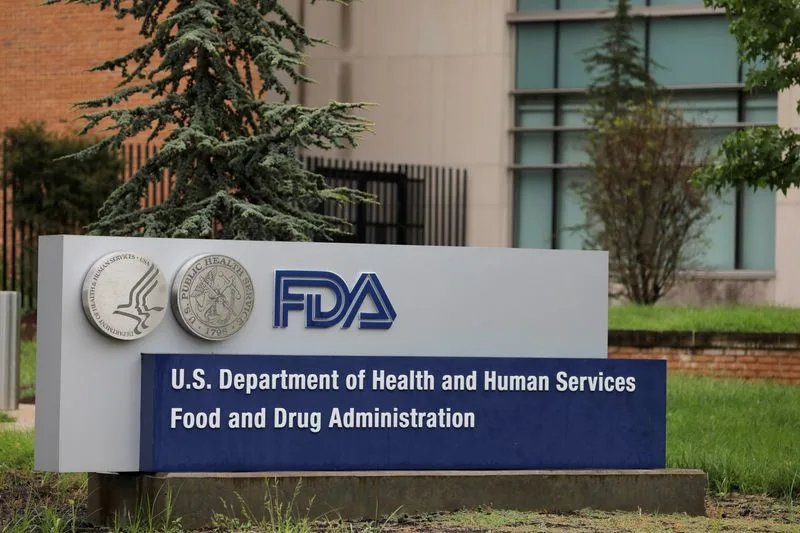The Food and Drug Administration (FDA Staff) has raised significant concerns about the effectiveness of a drug developed by Intercept Pharmaceuticals for treating liver disease. The drug, designed to combat nonalcoholic steatohepatitis (NASH), is now under scrutiny due to questions surrounding its efficacy and potential risks. This development could be a major roadblock for Intercept’s ambitions to bring their treatment to market as the first FDA-approved therapy for NASH, a disease affecting millions of Americans.
Understanding NASH and the Need for Treatment
Nonalcoholic steatohepatitis (NASH) is a progressive liver disease that occurs when fat builds up in the liver, leading to inflammation and scarring. Over time, NASH can result in cirrhosis, liver failure, and even liver cancer. Currently, there are no FDA-approved treatments for NASH, making it a significant focus for pharmaceutical companies.
Intercept’s drug, obeticholic acid (OCA), has been seen as a frontrunner in the race to treat NASH. OCA had previously shown promise in clinical trials by reducing liver fibrosis, a key symptom of NASH. However, the latest concerns from FDA staff raise questions about whether the benefits of the drug outweigh its risks.
FDA Staff Concerns About Efficacy
In a detailed briefing, the FDA staff highlighted concerns regarding the overall efficacy of obeticholic acid. While the drug demonstrated some ability to reduce liver fibrosis, the FDA raised doubts about the consistency of these results across different groups of patients. Some patients did not experience significant improvement, leading to concerns about how widely the drug would be effective if approved.
Furthermore, FDA staff pointed out that while reducing liver fibrosis is an important milestone, it may not necessarily translate into better overall outcomes for patients with NASH. The disease is complex, and fibrosis is just one of the many factors contributing to liver damage. The FDA’s concern is that while OCA may target one aspect of NASH, it might not sufficiently address the broader health issues caused by the disease.
Safety Concerns Amplified
In addition to efficacy concerns, the FDA raised alarms about the safety profile of obeticholic acid. Patients taking the drug reported significant side effects, including itching, fatigue, and increased cholesterol levels. These side effects could become serious health risks for patients already dealing with liver issues.
The potential long-term risks associated with OCA have also come under scrutiny. Some studies have suggested that prolonged use of the drug could lead to liver damage in certain patients, creating a paradox for a treatment meant to address liver disease. As a result, the FDA is cautious about approving a drug that may pose additional risks to patients.
Intercept’s Response
In response to the FDA’s concerns, Intercept Pharmaceuticals has defended the efficacy and safety of obeticholic acid. The company argues that the drug’s ability to reduce liver fibrosis in NASH patients represents a major breakthrough and that the side effects are manageable and consistent with other liver disease treatments.
Intercept has expressed optimism that its drug will still receive FDA approval, noting that the company has provided extensive data to address the agency’s concerns. In addition, Intercept highlights the unmet need for NASH treatments, which affects millions of people in the U.S. and globally. The company believes that the benefits of their drug outweigh the risks, especially in a population that currently has no FDA-approved treatment options.
Impact on Patients and the Pharmaceutical Market
The FDA’s final decision on obeticholic acid will have far-reaching implications for patients and the pharmaceutical industry. If the drug is approved, it could pave the way for other NASH treatments to reach the market, potentially opening the door to more innovative therapies. However, if the FDA rejects OCA, it may delay the availability of any treatment for NASH, leaving patients without viable options.
For Intercept, the stakes are high. The company has invested heavily in the development of obeticholic acid, and its future may be tied to the success or failure of this drug. A rejection from the FDA could be a significant setback for the company, potentially leading to financial losses and a drop in its stock value.
What’s Next for FDA and Intercept
As the FDA’s review process continues, the fate of obeticholic acid remains uncertain. The FDA is expected to hold an advisory committee meeting to discuss the concerns raised by its staff and allow outside experts to weigh in. Following this meeting, the FDA will make its final decision about whether to approve the drug.
In the meantime, patients and healthcare providers are left waiting. The need for a NASH treatment is urgent, but the FDA’s priority is to ensure that any approved drug is both safe and effective. As the review process unfolds, Intercept Pharmaceuticals will likely continue to advocate for their drug, hoping to sway the agency’s final decision.
The concerns raised by FDA staff over Intercept’s liver disease drug bring to light the challenges of developing treatments for complex diseases like NASH. While obeticholic acid has shown promise, questions about its efficacy and safety remain unanswered. The FDA’s upcoming decision will be critical, not only for Intercept Pharmaceuticals but also for the millions of patients waiting for a breakthrough in NASH treatment.
For more updates and in-depth analysis on the latest pharmaceutical developments, check out our health section at Digital Digest.





